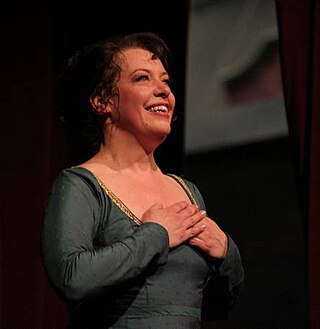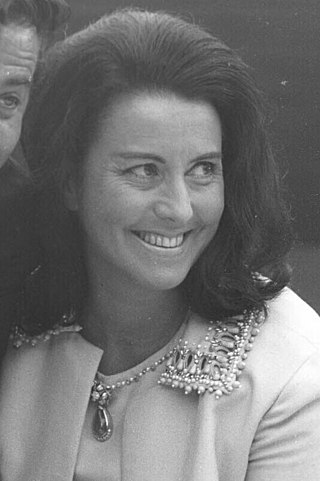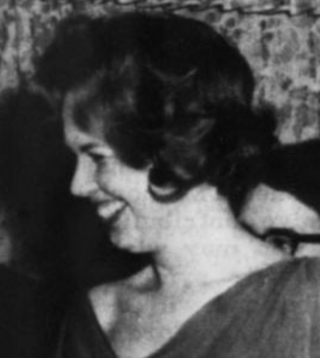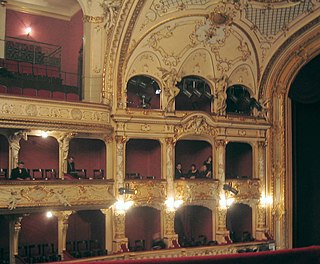Related Research Articles

Der Rosenkavalier, Op. 59, is a comic opera in three acts by Richard Strauss to an original German libretto by Hugo von Hofmannsthal. It is loosely adapted from Louvet de Couvrai's novel Les amours du chevalier de Faublas and Molière's comedy Monsieur de Pourceaugnac. It was first performed at the Königliches Opernhaus in Dresden on 26 January 1911 under the direction of Max Reinhardt, with Ernst von Schuch conducting. Until the premiere, the working title was Ochs auf Lerchenau.

Teresa Żylis-Gara was a Polish operatic soprano who enjoyed a major international career from the 1950s through the 1990s.
Otto Edelmann was an Austrian operatic bass.
Anja Harteros is a German soprano. Since winning the 1999 Cardiff Singer of the World competition she has been particularly associated with the Bavarian State Opera and enjoyed an international career.

Nina Maria Stemme is a Swedish dramatic soprano opera singer.

Lisa Della Casa was a Swiss soprano most admired for her interpretations of major heroines in operas by Wolfgang Amadeus Mozart and Richard Strauss, and of German lieder. She was also described as “the most beautiful woman on the operatic stage”.
Wilhelm Schüchter was a German conductor. He was Generalmusikdirektor in Dortmund and left a legacy of opera recordings.
June Card is an American soprano and stage director who had an active career in operas and concerts from 1959 through today. She began her career as a chorus girl on Broadway before moving into opera.

Opernhaus Dortmund is the opera house of Dortmund, Germany, operated by the Theater Dortmund organisation. A new opera house opened in 1966, replacing an earlier facility which opened in 1904 and was destroyed during World War I. It was built on the former site of the Old Synagogue, which was demolished by the Nazi local government in the 1930s.

Kay Griffel is an American operatic spinto soprano.
Tara Erraught is an Irish mezzo-soprano, a graduate of the Royal Irish Academy of Music (RIAM).
Elisabeth Glauser is a Swiss operatic mezzo-soprano and an academic teacher of voice. She was engaged at opera houses in Germany and has appeared at international festivals including the Bayreuth Festival and the Glyndebourne Festival. She has focused on roles by Richard Strauss and Richard Wagner, and has created roles in contemporary opera, such as Babette in Henze's Die englische Katze.

Elsa Cavelti was a Swiss operatic contralto and mezzo-soprano, temporarily also a dramatic soprano, who worked at German and Swiss opera houses and as an international guest. She was an academic voice teacher in Frankfurt.
Liane Synek was an Austrian operatic soprano. She made a career based in Germany, at the Hessisches Staatstheater Wiesbaden, the Staatsoper Berlin and the Cologne Opera, and appeared at international major opera houses and festivals, such as the Bayreuth Festival. She appeared mostly in dramatic roles such as Beethoven's Fidelio, and Wagner's Sieglinde, Brünnhilde and Isolde. She also performed in contemporary operas, creating the role of Countess de la Roche in Zimmermann's Die Soldaten in Cologne in 1965, conducted by Michael Gielen.
Ingrid Haubold is a German operatic soprano. After beginning her career in Munich and continuing with German companies, she moved on to major international opera houses, appearing as Isolde in Wagner's Tristan und Isolde at the Teatro Real in Madrid in 1986, as Senta in Der fliegende Holländer at the Savonlinna Opera Festival, and in the title role of Beethoven's Fidelio at the Metropolitan Opera in New York City.

Siegfried Vogel is a German operatic bass. Based at the Staatsoper Berlin, he performed internationally at major opera houses and festivals, including the Salzburg Festival and the Bayreuth Festival. He began in Mozart roles, but expanded his repertoire, including world premieres of operas.

Sylvia Geszty was a Hungarian-German operatic coloratura soprano who appeared internationally, based first at the Staatsoper Berlin in East Berlin and from 1970 at the Staatstheater Stuttgart. She is remembered as Mozart's Queen of the Night and an ideal Zerbinetta in Ariadne auf Naxos, but also performed Baroque opera and in the world premiere of Kurt Schwaen's Leonce und Lena.
Heinz Imdahl was a German operatic baritone. A member of the Bavarian State Opera, he performed many leading roles at the Vienna State Opera, and appeared as Beethoven's Pizarro at the Teatro dell'Opera di Roma and Wagner's Hans Sachs at the Philadelphia Opera.

Janina Baechle is a German operatic mezzo-soprano. She was a member of the Vienna State Opera from 2004 to 2011, and has appeared internationally.
Ina Gerhein is the stage name of Sabine Heinzinger, a German operatic mezzo-soprano and contralto who was a long-term member of the Bavarian State Opera.
References
- 1 2 3 4 5 6 7 Kutsch, K. J.; Riemens, Leo (2012). "Hammes, Liselotte". Großes Sängerlexikon (in German) (4th ed.). Walter de Gruyter. pp. 1948–1949. ISBN 978-3-59-844088-5.
- ↑ Ab 1965 (PDF). 2015. p. 126.
{{cite book}}:|work=ignored (help) - ↑ "Der Rosenkavalier, 07 August 1965". Glyndebourne Festival . Retrieved 29 March 2019.
- ↑ Steiger, Karsten (2011). Opern-Diskographie: Verzeichnis aller Audio- und Video-Gesamtaufnahmen (in German). Walter de Gruyter. p. 459. ISBN 978-3-11-095596-5.